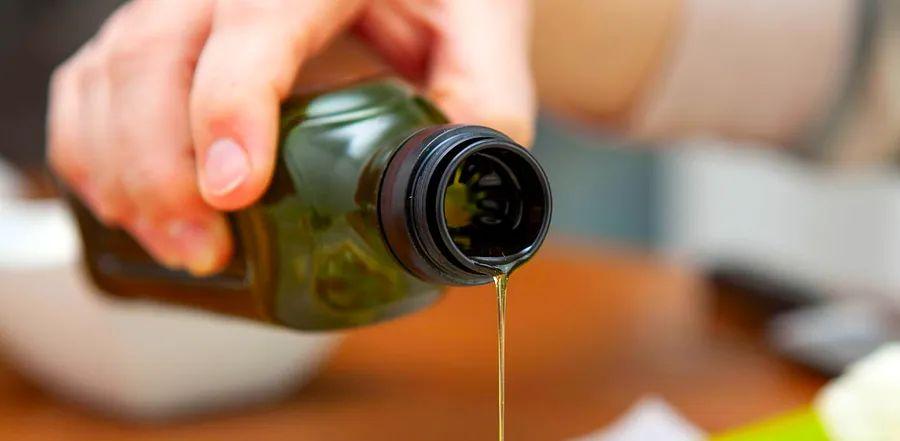How to Know When Your Olive Oil Has Gone Bad

Olive oil is an incredibly versatile kitchen staple. Whether you're using it for dressings, sautéing vegetables, or dipping bread, its uses are endless.
With its many varieties and qualities, choosing the right olive oil can be more important than you might think. Once you find the perfect bottle, you may be tempted to hold onto it. Whether you bought a large bulk container for future use or picked up a special bottle during a trip, it's natural to want to save it for later.
However, like all good things, olive oil doesn’t last indefinitely. To avoid wasting it, learn how to store it properly before it spoils.

Image Source: Getty Images
Does Olive Oil Expire?
Although olive oil may seem like one of those pantry staples that never spoils (like honey), it actually does have an expiration date.
A sealed bottle of olive oil typically lasts between 18 to 24 months. However, this can vary depending on the type of oil. Extra virgin olive oil tends to have a shorter shelf life, lasting around 12 to 18 months.
To determine how long your olive oil has been sealed, check for the harvest date on the bottle. This will indicate the oil’s freshness and how long it can be stored.
Once opened, try to use your olive oil within a month or two. The good news is, olive oil is so versatile that you’ll easily find ways to incorporate it into your meals.
How to Tell If Your Olive Oil Has Gone Bad
Bad olive oil has a distinct odor, so you can usually tell by simply smelling it. If it smells rancid, it’s time to throw it away.
Some describe expired olive oil as having a waxy smell, like a box of crayons. If it reminds you of school supplies rather than cooking oil, it’s time to get a new bottle.
If you’re unsure, give the oil a taste. Bad olive oil has a sour or off flavor that’s easy to detect. While a small amount likely won’t make you sick, it will affect the taste of your dish. If it tastes fine, it's good to use.

Image Source: Peter Carruthers/Getty Images
How to Properly Store Olive Oil
To keep your olive oil from spoiling, the key is proper storage.
The most important thing is to protect your olive oil from air exposure. Keep the bottle sealed until you're ready to use it, and avoid transferring it into a different container. While it might be tempting to pour it into a fancy bottle like those at restaurants, don’t do so unless you plan to use it up quickly.
Keep your olive oil away from sunlight and high temperatures. Store it in a dark cabinet or pantry, and choose olive oil sold in dark containers—preferably tin or dark glass. Plastic bottles are porous, and exposure to air can cause the oil to spoil more quickly.
In most cases, avoid storing olive oil in the refrigerator. It can cause the oil to solidify, losing both its flavor and its usability in cooking.
Olive oil doesn’t last forever, but with regular use, you’ll likely never need to worry about it going bad. Just keep it in your pantry, and it will be good for frequent use.

1

2

3

4

5
Evaluation :
5/5